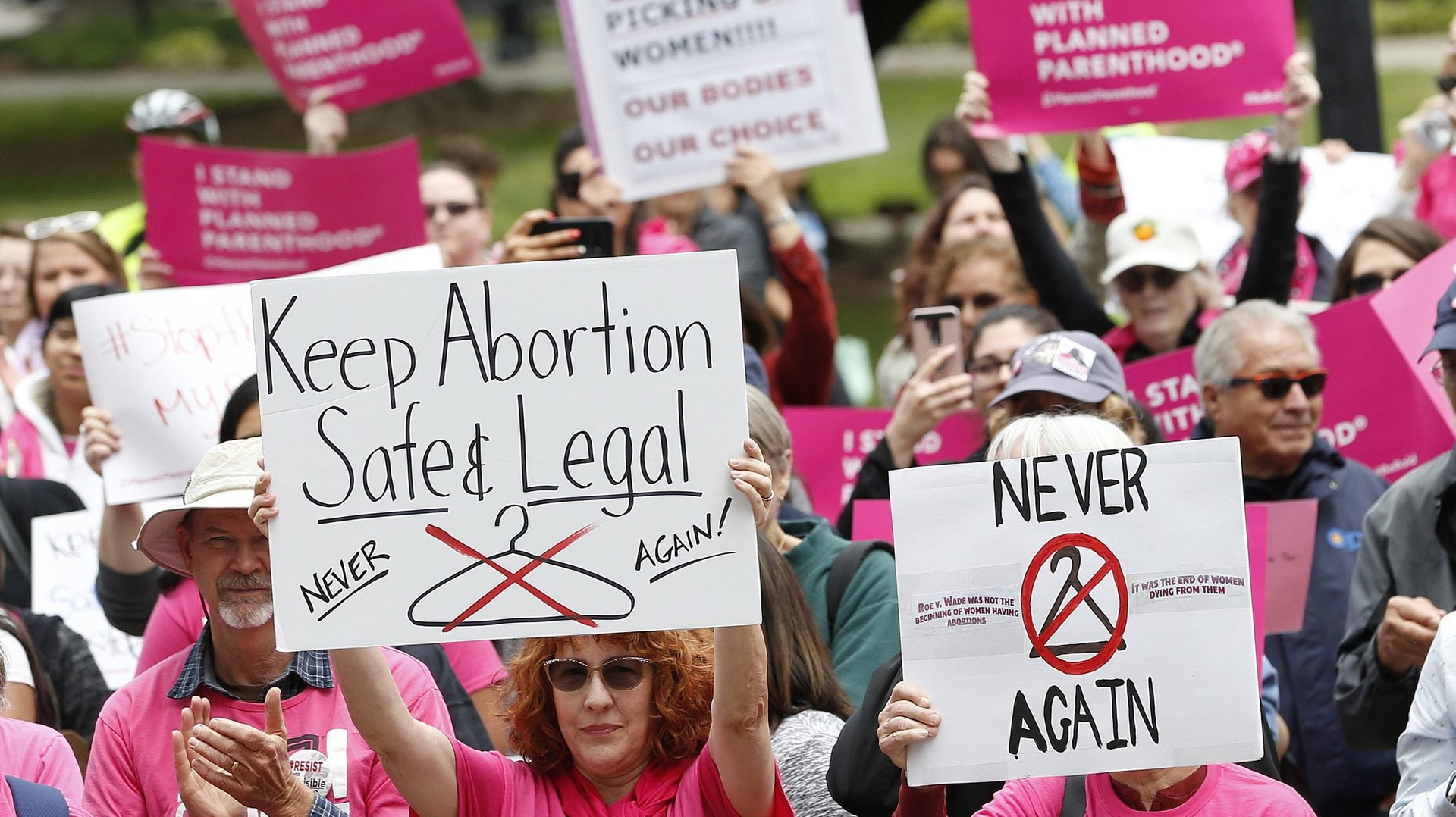These cities are standing up for reproductive rights in the age of Trump
Since assuming office, US president Donald Trump has moved quickly to curtail reproductive rights. Among other things, his administration has allowed religious exceptions to the employer’s duty to provide contraception coverage and has changed the approach to sexual education to favor abstinence-only teachings.


Since assuming office, US president Donald Trump has moved quickly to curtail reproductive rights. Among other things, his administration has allowed religious exceptions to the employer’s duty to provide contraception coverage and has changed the approach to sexual education to favor abstinence-only teachings.
This, together with the appointment of two new supreme court justices—Neil Gorsuch and Brett Kavanaugh—has emboldened conservative states to put forth bills aiming to ban abortion, in the hopes they can be approved if Roe v Wade is ever overturned. Progressive states, anticipating the same, have moved to further protect their citizens’ right to reproductive health.
This has created a complex national patchwork where a number of states are in outright conflict with the federal government, while others are in alignment with its policies and plans. Among this confusion, local communities—cities, in particular—have struck out on their own, some of them in direct opposition to the state and federal policies where they are located.
In the same way cities have resisted Trump’s hardline immigration policies, they have become sanctuaries for reproductive health.
This year’s Local Reproductive Freedom Index, compiled by the National Institute for Reproductive Health (NIRH), ranked 50 municipalities based on how they support reproductive health services, analyzing the most innovative and creative policy interventions cities have adopted to protect access to reproductive care.
The cities selected for the study fall into two camps: The first 40, which were ranked in the first NIRH’s index in 2017, represent the most populous metropolitan areas in the country. The last 10, newly added to this year’s index, were identified as important centers in parts of the country otherwise overlooked.
These cities represent key access points for reproductive health services, and help paint a picture of the state of play outside the most populous parts of the country. Jackson, Mississippi, Birmingham, Alabama, and Fargo, North Dakota, are for instance the only cities in those states that offer any abortion services at all.
Based on a list of more than 30 policies ranging from distributing menstrual hygiene products in schools or jails to protecting abortion clinic personnel, the cities are given a ranking from zero to five stars. San Francisco is the only city with 4.5 stars, leading the pack. Billings, Montana, meanwhile, ranks last with 0.5 stars.
Overall, the vast majority of cities were given between 2.5 and 0.5 stars, with only 15 places ranking three star or more. Chicago and New York got four stars. Boston, Los Angeles, Seattle, Washington, DC and Portland, Oregon, all got 3.5.
These are all large urban centers with hefty budgets. What excites Andrea Miller, the NIRH president, however, is how small cities with limited resources are finding ways to protect the reproductive rights of its residents. “Some of the bigger cities have higher scores. But that’s not as important as having creative and innovative approaches,” she said.
The index takes several of them into consideration, looking at whether the city’s services empower people to decide if and when they will have kids—for instance providing access to contraception and abortion, but also offering fair housing and employment opportunities, paid time off for new parents, or breastfeeding support. These interventions, Miller explained, can be as simple as a local health department launching a new sex education campaign or enforcing zoning laws to protect abortion clinics.
Beyond the index, the report also lays out the path a city can take to ensure it is completely supportive of reproductive care, presenting the policies of a hypothetical “model city” that every town could follow as an example.
“The current political climate has placed new demands on cities, and they have looked at new policies—so we see a lot of cities stepping up,” Miller said, noting that a place like Jacksonville, Florida, went from being at the bottom of the list in 2017 to having 1.5 stars in 2018. Jacksonville, Miller said, promoted reproductive care education, reduced gender discrimination, and passed parental leave policies. While far from the model city, it’s significant progress, which Miller said is more important than the absolute score.
“Historically, people have not understood just how much municipalities can do to answer the needs of their citizens,” she said. But the fact that cities, especially in conservative states, are able to show their commitment to reproductive health, is a testimony to the impact of political engagement on the local level.